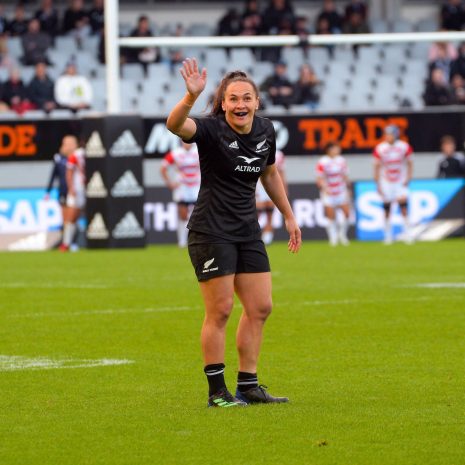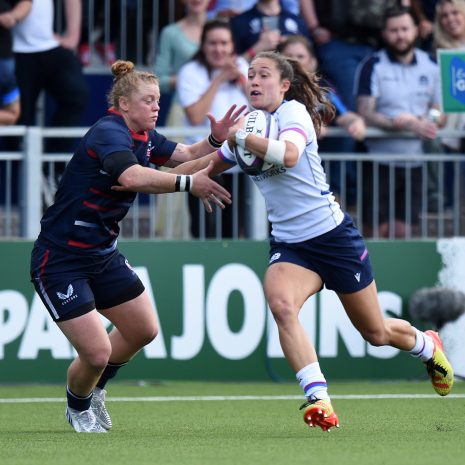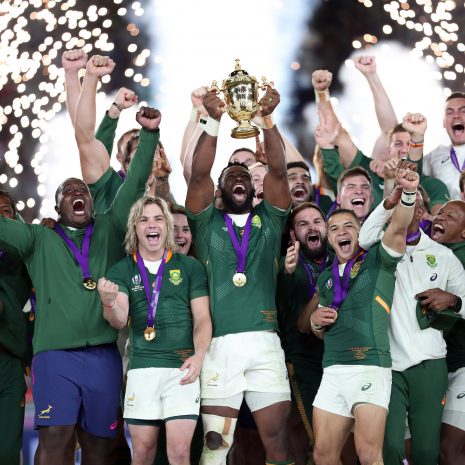Andy Zaltzman’s Rugby World Cup
Stand-up comedian, Andy Zaltzman, reflects (painfully) on the Rugby World Cup so far as an English fan.
Before the World Cup began, Stuart Lancaster reportedly called on England’s players to “create memories”. This goal they have unquestionably achieved. Unfortunately for England and their fans, they are the kind of memories that can wake you in the middle of an afternoon snooze six decades after the event, screaming: “Why?” There will be fist-fights in nursing homes in the 2070s about whether England were right, wrong, or insane to go for the line-out.

As I discovered in 2012, one of the perks and pitfalls of self-employment is the ability to assiduously monitor ticketing websites of major sporting events. As a result, not only have I paid money to watch a 50-kilometre walk and some horses trotting around slowly but neatly, but also, just two weeks ago, I acquired four tickets to the England-Wales match, in the (relatively) cheap seats.
Given that the game could have sold out multiple times over when the initial ballot was drawn in 2014, and would probably have come close to capacity if it had gone on sale in 1814, before rugby was invented, I was a fortunate beneficiary of a ticketing system which will surely baffle historians for centuries to come.There will be fist-fights in nursing homes in the 2070s about whether England were right, wrong, or insane to go for the line-out.
My son, aged six, is a competitive type, being, as he is, (a) six and (b) human. The closing minutes at Twickenham did not treat him well. I remember, as an 11-year-old, crying when Maradona’s Hand-Of-God and Feet-Of-Whoever-God’s-Boss-Is goals knocked England out of the 1986 football World Cup, and I was merely watching on television next a snoozing mother. I could therefore fully understand my boy giving his tear ducts and larynx a solid work-out, enveloped in an 82,000-strong ferment of anxious excitement as the drama rumbled and shifted towards its soul-clenching, emotionally-frantic denouement.
I attempted to console him. “It’s only sport, it does not really matter.” The jubilance of the Welsh fans around us suggested otherwise. As did the forehead-clutching England supporters. As did my own face. My son was merely vocalising what the majority of the Twickenham crowd were thinking.
England coach Stuart Lancaster was left looking like a man who had just won a castration in a raffle. His selections had almost paid off. His tactics had almost worked. His team had almost done it. Then his bench backfired, his immovable defensive lynchpin went walkabout, his team blew it.

“The better team won,” I told my son, hoping that some sense of sporting justice would dampen the disappointment, carefully omitting the words “in the most important period of the match” in between “team” and “won”. This was a thoroughly-merited victory. And a thoroughly-merited defeat.
And a memory indelibly created for a six-year-old boy, of the stirring magnificence and illogical pain of being a sports fan. He had cheered up by the time we arrived home. I am still annoyed. I have lost my nerve in moderately competitive eBay auctions, and choked in the decisive moments of tension-riddled games of Minesweeper. I cannot imagine the stresses of a career-defining rugby international, in a match whose hype could be seen with the naked eye from space. But, as I believe Aristotle himself once wrote, “For heaven’s sake, take the points.”Lancaster was left looking like a man who had just won a castration in a raffle.
At the other end of the crowd intensity scale, New Zealand against Namibia offered moments of All-Black brilliance and a robust defensive effort by the under-underdogs, but became, in the second half, one of those rugby matches in which an awful lot of time was spent standing around doing an awful lot of nothing. Rugby’s labyrinthine rule book (which has been scientifically proven to have the capability to kill an adult triceratops, if printed in 16-point Arial on reasonable-quality paper and dropped from the top of a triple-decker bus) took control of proceedings via its earthly representative, the French referee Romain Poite.
It was the kind of game in which you can find yourself idly calculating how much money a crowd of 50,000 has just spent to watch a scrum finally result in a penalty after its third reset. Assuming (a) an average ticket price of £100, and (b) one minute per scrum, it tots up to £187,500-worth of static, action-unpacked sporting nothingness, before the referee decides to end the misery by speculatively ruling that Prop A was a couple of millimetres off straight, or that Prop B was unsurprisingly unable to keep hold of Prop C’s shrink-wrapped sweat-greased industrial bollard of an arm whilst two 150-stone eight-man megawodges of gym-hardened human hulk were attempting to shunt each other like vengeful freight trains, or that Hooker D breathed out of the wrong nostril.

Thankfully, the tournament’s initial stages have been mostly vibrant and expansive, with some of the most dramatic moments in the Rugby World Cup’s brief history, played out in front of staggeringly large crowds.
Even Tonga against Namibia, a match of little relevance to the destiny of the cup, was a sold-out riot of brilliance, width, pace and adventure, adding to the sense that international rugby is generally heading in the right direction. Ambition has been rewarded, most spectacularly in Japan’s win over South Africa, plucked from the “too unrealistic” pile of rejected Hollywood scripts.Tonga against Namibia was a sold-out riot of brilliance.
As a rugby fan, it has been glorious. As a Harlequins-supporting England fan, it has been also been agonising. I am pessimistic for Saturday’s clash with Australia, reigning champions of rugby’s better hemisphere. Four years of methodical Lancastrian preparation seem to have come down to an unorthodox cocktail of gambling and conservatism.
 Andy Zaltzman, is a stand-up comedian, the British-based half of the international hit satirical podcast The Bugle, regular on 5 Live’s 7 Day Saturday, ESPNcricinfo contributor, and a man who prefers sport to reality. His own competitive rugby career ended at the age of 11 due to a combination of uselessness and cowardice.
Andy Zaltzman, is a stand-up comedian, the British-based half of the international hit satirical podcast The Bugle, regular on 5 Live’s 7 Day Saturday, ESPNcricinfo contributor, and a man who prefers sport to reality. His own competitive rugby career ended at the age of 11 due to a combination of uselessness and cowardice.




Comments